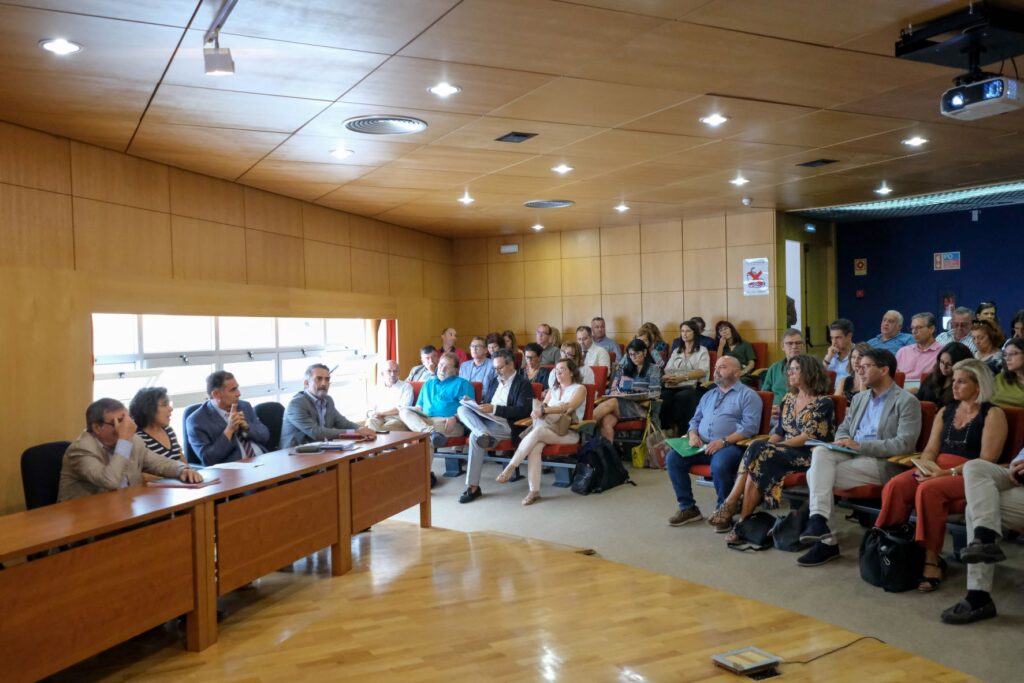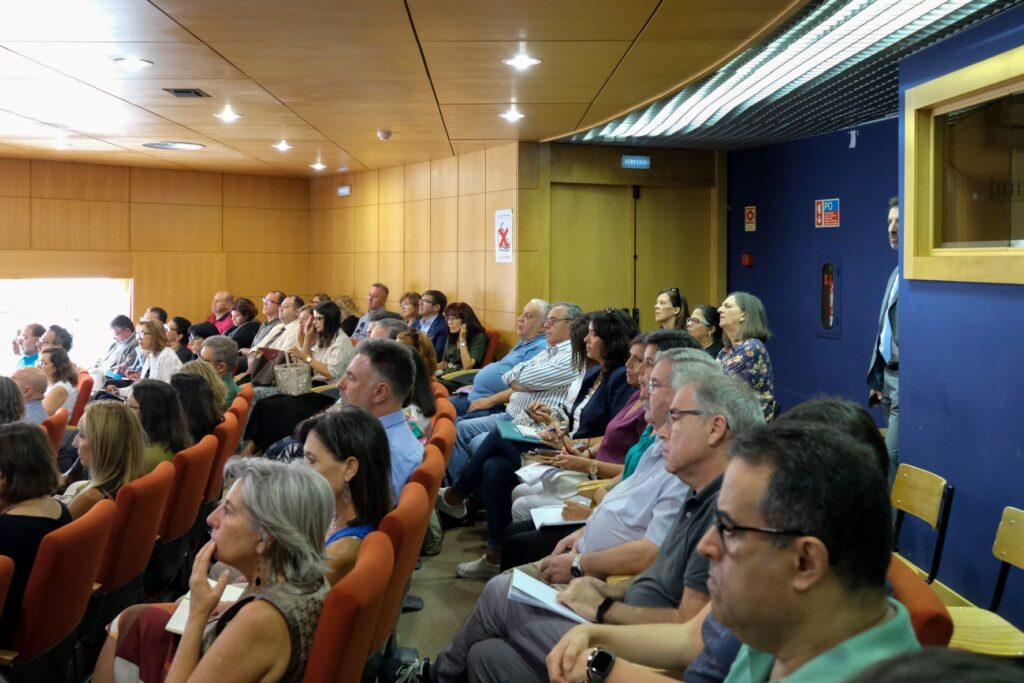Breaking “with the record of low qualifications and low salaries” and “empowering people”, through “a clear commitment to training at all levels, but, above all, in professional higher education technical courses” is the main objective to be proposed by the Algarve Regional Coordination and Development Commission (CCDR) within the scope of the next Portugal 2030 support framework.
This was one of the conclusions of the working meeting “Algarve: the qualification of people in the 2030 horizon”, which the Algarve Regional Coordination and Development Commission, in collaboration with the University of Algarve, promoted on Tuesday, the 26th.
CCDR carried out «an in-depth diagnosis of the situation in the region» and a preliminary assessment of the projects financed in Portugal 2020, based on the economic and social development indicators of the Algarve, and defined, in a proposal made to the European Union, the priorities of the next framework Community support Portugal 2030, where 92 million euros are registered, within the scope of the European Social Fund +, for interventions in the field of Qualifications, Employment and Social Inclusion.
This budget will be distributed among four main areas of intervention: Initial Youth Qualification, Lifelong Learning, Employment and Social Inclusion.
These priorities are linked to the reality experienced in the region, which is characterized by incomes that are increasingly below the national average, as well as high early school leaving.
«If, in 2011, the average net monthly income of employees in the Algarve was 3,45% lower than the national average, this difference has widened over the decade. According to INE data, in 2021, the average income of employees became 6,08% lower than the national average», framed José Apolinário, president of CCDR Algarve, at the meeting.
“The disqualification cycle is not only reflected in remuneration. It starts in high school with the high early school leaving. In 2019, before the pandemic, school dropout was almost 20%, having only decreased by 5 percentage points from 2011 to 2019, which contrasts with the other regions of the continent where, in the last decade, the reduction amounted to 11 points. percentages, standing in that year 2019 at 10%", he added.
In practice, this means that, in the Algarve, “almost 1000 young people who have not completed secondary education” are launched into the job market every year.

«The region needs to break with this record of low qualifications that lead to low salaries», defends José Apolinário, who believes that we should focus on expanding the recruitment base for training in higher education, through a boost in professional higher technical courses , counting on the support of the University of Algarve (UAlg) to implement this strategy.
According to the president of the Algarve CCDR, the community support framework Portugal 2030 may be the last opportunity to reverse the socio-economic weaknesses of the Algarve region, so it is necessary to manage both regional and national funds well.
«To leverage the funds for the so-called bazooka, the vertical and sectoral intervention of many of the measures and warnings within the scope of the Recovery and Resilience Plan and the various sectoral and thematic programs with the funds managed by the Regional Program, it is urgent that the deconcentrated services of the State work, side by side, with the Municipalities and with the different actors in the region», said José Apolinário.
The meeting was attended by the presidents of the Intermunicipal Community of the Algarve and of the Tourism Region, who offered to help strengthen the network of training offer in the region, as well as the vice-rector of UAlg, who stressed that the university has invested in increasingly in technical courses.
The need for centers of competence for the provision of training «that promote the concertation of the training offer of initial qualification and lifelong training» was, moreover, highlighted by António Oliveira das Neves, CCDR consultant.

With regard to labor issues, António Goulart, president of the Algarve Union of Trade Unions, recalled that «with low wages it is not possible to value work and boost qualifications», and that «the problem of the quality of employment in the region", according to the CCDR.
The representative of the NERA Business Association, for his part, “underscored the importance of continuous training for workers, noting that NERA is available for a redoubled effort to mobilize Business Associations to promote lifelong learning”.
The representative of the Ministry of Education (DGeST), Margarida Pereira, “marked the improvement in results and the measures that are planned to tackle the problem of early school leaving, highlighting the projects to promote educational success (TEIP Schools), which are expected to continue to benefit from community support, and investment in the new Specialized Technological Centers».
António Palma, from the IEFP, « took stock of the recent evolution of the labor market, highlighting not only the role of the IEFP in qualifying the unemployed, but also in promoting improvements in the quality of employment, through support for permanent employment, and measures to facilitate the entry of young people into working life, such as internships».
CCDRA Proposal for Large Areas in the Algarve 2030
Initial Youth Qualification
In the area of initial qualification of young people, CCDR Algarve intends to allocate around 24% of the total investment of the European Social Fund +.
In this sense, 15 million are earmarked for training young people in STEAM areas through CTeSP. Around 4 million euros will be spent on projects that promote equal opportunities and are intended, above all, for children and young people at risk of school failure and early school leaving, but also for needy students attending Higher Education.
The remaining amount is intended to strengthen the technological infrastructure of higher education establishments (Digital Building on the Gambelas campus, the construction of a new campus in Portimão and for the acquisition of equipment and equipment for the CTeSP Laboratories).
lifelong learning
Around 26 million euros will be allocated to the second area, relating to lifelong learning, with the most significant part (13 million euros) being allocated to the educational and professional qualification of adults, with a contribution to the insertion in the job market and improvement of the economy, through Modular Training projects (and Active Life), Technological Specialization Courses; Health Professionals Training; Training Teachers and Qualifies Centers.
Around 7.2 million euros will be invested in Training of employed assets, very directed towards adaptability to the requirements of the job, through Training-Action projects, Training Licenses, Training of entrepreneurs and managers and also for the Training of the Administration Local Public.
Finally, in order to develop basic skills and qualifications for disadvantaged groups with low qualifications, Adult Education and Training Courses will be held and, taking into account the large migratory flows that the Region has received, there will be a wide range of courses on Portuguese as a Host Language.
JOBS
The third area, which directly concerns employment, will have an investment of around 21 million euros, of which 13.8 million will be directed to promoting access to employment and promoting entrepreneurship, through Professional internships, +CO3SO Employment , support for Geographic Mobility and incubation structures in the interior.
To support qualified employment, 7 million will be available, which will be used, above all, to support the hiring of highly qualified human resources.
Still in the area of employment, around half a million euros will be used to promote the so-called inclusive employment, which includes equal opportunities and the training of strategic audiences.
Social inclusion
The last area, concerning social inclusion, will promote the raising of inclusion levels in the labor market, the innovation of social responses, and help to qualify the gray and longevity economy cluster, at this stage with a proposal of 27 million euros.
Among these, we highlight around 10 million intended to support the social inclusion of groups in situations of vulnerability, such as migrants, the homeless, children at risk, the elderly and other social groups in of vulnerability.




















Comments